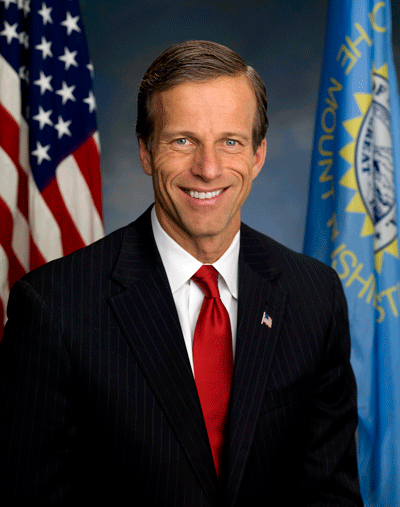

New Rules for A New and Evolving Economy
By Sen. John Thune
Today’s workforce, economy, and consumer needs are constantly changing. They’re far different than they were a generation ago, and, in some respects, they’re already different than they were just a few years ago. So, as technology evolves, and as the world around us modernizes and becomes more interconnected, it’s important for the United States to maintain a competitive edge by ensuring our laws keep up with these changes. We risk being left behind if we don’t.
Elected leaders can’t sit on the sidelines and expect workers and businesses to stop growing and innovating and pushing the boundaries of outdated laws. We should always challenge ourselves to be forward-looking and avoid the temptation of complacency, and I’m proud to have a record that reflects a desire to keep the United States heading toward the future.
I serve on both the Senate Finance Committee, which is tasked with writing our nation’s tax laws, and the Senate Commerce Committee, which oversees issues related to technology and communication. It’s a unique intersection, and together they put me in a strong position to advocate for the kind of pro-growth policies the economy needs.
In February, I reintroduced bipartisan legislation that would simplify the tax code to help today’s increasingly mobile workforce. Under current law, an individual who lives in a state like South Dakota, with no state income tax, might be required to file income taxes in multiple states for simply having temporarily worked in other states – in some cases, for as little as 24 hours. My bill, the Mobile Workforce State Income Tax Simplification Act, creates a common-sense standard to relieve this burden from employees and employers.
My New Economy Works to Guarantee Independence and Growth (NEW GIG) Act, which I reintroduced in March, would create some much-needed clarity for how the IRS treats workers like computer consultants, freelance writers, ride-share drivers, on-demand food delivery services, or others who participate in today’s gig economy. The NEW GIG Act would modify the tax code to more clearly define who is an independent contractor and who is a traditional employee, an important and potentially costly distinction for a lot of gig companies.
The products and services themselves that are offered through these new digital platforms and apps aren’t immune from the evolving economy either. Today’s online marketplace can be an extremely convenient way for consumers to purchase and receive these products, but it can also be challenging for those people who provide these goods and services, particularly as it relates to how they are taxed by state and local governments.
For example, let’s say you live in South Dakota, and while you visit Minnesota, you buy a song that’s stored on a server in New York. Under current law, all three of those tax jurisdictions could, under the right circumstances, tax your purchase. My bill, the Digital Goods and Services Tax Fairness Act, would provide some much-needed clarity that would prevent consumers from being hit by duplicative taxes.
Aside from these legislative efforts, I’ve been focused like a laser on expanding broadband connectivity, particularly in rural areas, and helping to lay the groundwork for 5G mobile broadband technology, which would help everyone in the United States, especially those who are participating in today’s economy. As chairman of the Commerce Committee’s Subcommittee on Communications, Technology, Innovation, and the Internet, I recently convened a hearing on rural broadband and invited two South Dakota telecommunications companies to share their perspective on this issue, which will continue to be a priority for me.
When it comes to future economic growth and opportunities, we need to keep our foot on the gas and our eyes on the road, because we won’t remain competitive if we don’t make modernization and innovation a priority. I’m committed to it, though, and, fortunately, I know many of my colleagues are, too.
###
